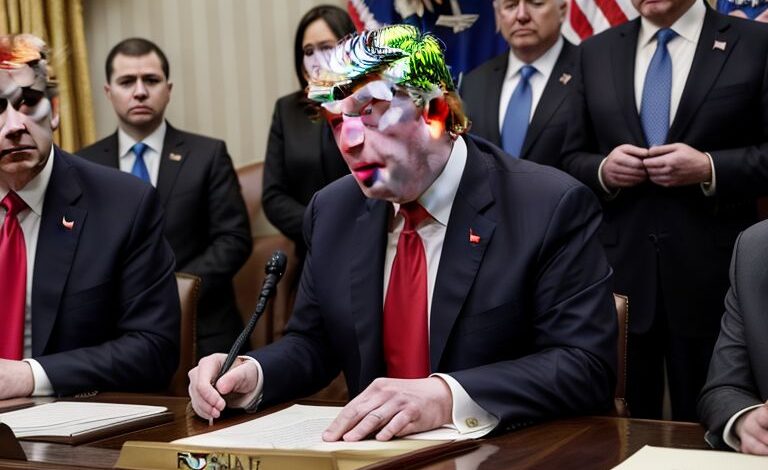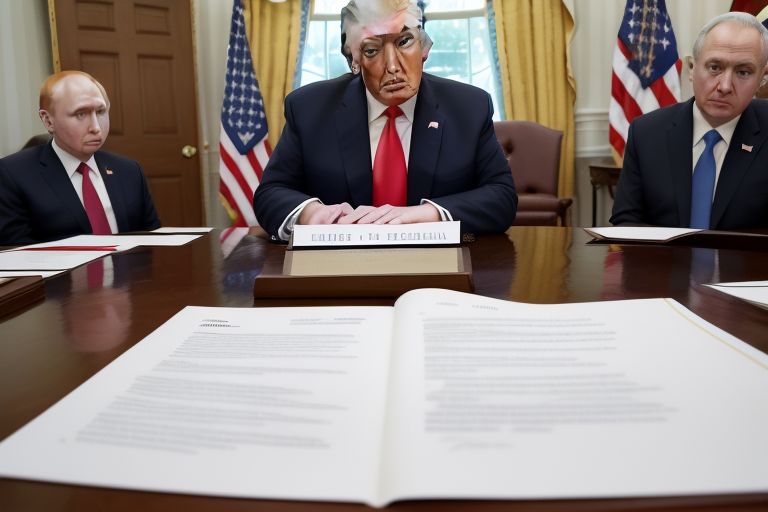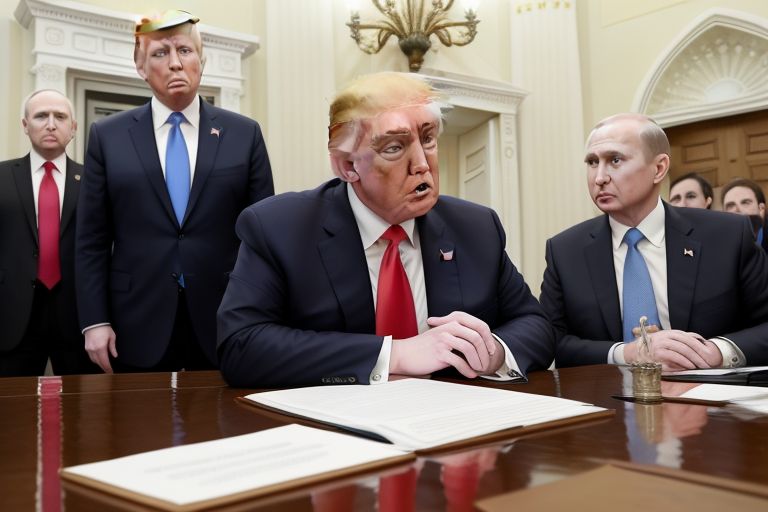Trump Russia: Unraveling the Complex Ties and Investigations

Trump Russia has been a topic of intense discussion and investigation since the 2016 U.S. presidential election. The connection between Donald Trump and Russia has led to numerous inquiries, including the Mueller investigation, which sought to determine the extent of Russian interference in the election and any possible coordination with Trump’s campaign. While the investigation did not establish that the Trump campaign conspired with Russia, it highlighted several interactions and contacts between campaign officials and Russian individuals. These findings have sparked debates about the nature of foreign influence in U.S. politics and the implications for national security and electoral integrity.
The Mueller report, released in 2019, detailed Russian efforts to interfere in the election, such as hacking Democratic emails and disseminating disinformation through social media. It also examined potential obstruction of justice by President Trump. Although the report did not conclude that Trump committed a crime, it did not exonerate him either, leaving room for ongoing discussions and investigations. The topic of Trump Russia continues to be relevant as it raises questions about the influence of foreign powers on democratic processes and the accountability of public officials.
Table of Contents
Understanding the Trump Russia Investigation: Key Findings and Implications
The Trump Russia investigation started because many people were worried that Russia tried to help Donald Trump win the 2016 U.S. election. The government wanted to know if Trump or his team worked with Russia in any way. After looking into it for almost two years, special investigators found that Russia did try to interfere, but they didn’t find enough proof to say Trump broke the law. Still, they shared many strange meetings and talks between Trump’s team and Russian people. The findings made people think about how foreign countries might try to influence U.S. elections. It also reminded everyone that leaders must always be honest and careful when they speak to other countries, especially during elections.
How Russia Interfered in the 2016 U.S. Election: A Deep Dive

Russia used sneaky ways to try to affect the 2016 U.S. election. One major way was by hacking emails from people working with Hillary Clinton, who was running against Trump. These emails were shared online to make her look bad. Russia also used fake social media accounts to spread lies and confuse voters. They made fake news and fake events to cause fights between Americans. The goal was to make people lose trust in each other and the voting system. Even though many didn’t notice at first, later reports showed how big and organized this plan really was. It taught everyone how important it is to protect online spaces, especially during election time, so that outside countries can’t trick voters.
The Role of Social Media in the Trump Russia Scandal
Social media played a big role in the Trump Russia scandal. Russia used platforms like Facebook, Twitter, and Instagram to post fake messages and news. They created fake accounts that looked like real Americans. These accounts posted things to make people angry or scared. Some even tried to make people not vote at all. The goal was to confuse people and make them fight each other. Many of these posts were seen by millions before anyone knew they were fake. After the election, people learned how easy it is to spread lies online. This made social media companies change their rules and try to catch fake accounts. It also showed how important it is for people to check if news is true before they believe or share it.
Legal Consequences of the Trump Russia Investigation: What You Need to Know
The Trump Russia investigation didn’t end with just a report—it also had legal results. Even though Donald Trump wasn’t charged with a crime, several people close to him got into legal trouble. Some of his team members were found guilty of lying to the government or hiding their connections with foreign people. These included campaign advisers and even a former national security advisor. The investigation also looked at whether Trump tried to stop people from finding the truth, which is called obstruction of justice. While he wasn’t charged, the report didn’t clear him either. This made lawmakers and citizens ask hard questions about what’s right and wrong for a president to do while in office. It showed how serious these investigations can be.
Public Perception of the Trump Russia Connection: A Survey of Opinions
People across the U.S. had very different opinions about the Trump Russia story. Some believed that Trump did something wrong and should face punishment. Others thought it was all a trick to make him look bad. These opinions often followed political lines, with Democrats more likely to believe in wrongdoing, and Republicans defending Trump. Even when the investigation ended, people still argued about what the findings meant. Some trusted the report, while others thought it was unfair or incomplete. This showed how divided people were and how hard it is to agree on facts in today’s world. The public’s reaction also highlighted how media, politicians, and online posts can shape how people feel about serious national events.
Comparing the Trump Russia Investigation with Other Political Scandals
When people talk about the Trump Russia case, they often compare it to other big political scandals in U.S. history. One famous example is Watergate, where President Nixon was caught trying to hide crimes. Like Trump’s case, Watergate also led to a big investigation and made people question their leaders. Another was the Clinton impeachment in the 1990s. In both of those cases, the country was deeply divided. The Trump Russia investigation was different because it also involved a foreign country trying to interfere in an election. While not every scandal ends with charges, all of them shake people’s trust in government. Looking back at other cases helps us understand what makes the Trump Russia issue unique and why it matters so much.
Future Implications of the Trump Russia Investigation on U.S. Foreign Policy
The Trump Russia story didn’t just stay in the news—it also changed how the U.S. talks to other countries. Leaders now have to think more carefully when dealing with foreign governments, especially during elections. The investigation showed how easy it can be for other nations to try to sneak into American politics. Because of this, the U.S. made stronger rules to protect future elections from outside influence. Some leaders also started being more careful about phone calls and meetings with foreign officials. The case reminded everyone that even small talks or deals can raise big questions. It also pushed for better cybersecurity, stronger election laws, and more honesty from people in power when dealing with countries like Russia.
The Media’s Role in Shaping the Trump Russia Narrative
The media played a huge part in the Trump Russia story. News outlets from TV to online blogs talked about the investigation every day. Some shared facts, while others pushed opinions. Because different media sources gave different messages, people often believed very different things depending on what they watched or read. Some shows made Trump look guilty, while others said he did nothing wrong. This made it hard for many to know what was really true. The nonstop news also made the story feel bigger and more confusing. In the end, the Trump Russia case taught us how powerful media can be in shaping how people think. It also showed why it’s important to check multiple sources and ask questions before forming an opinion.
Lessons Learned from the Trump Russia Investigation: Safeguarding Future Elections

One big thing everyone agrees on is that we must protect future elections better. The Trump Russia case showed that other countries can and will try to mess with U.S. elections. That means better cybersecurity, stronger voter protection, and teaching people how to spot fake news. It also means watching social media more closely and making sure political ads are honest. The government and tech companies now work together more to stop foreign influence. But regular people have a role, too. We all need to be smart about what we read and share. If everyone does their part, future elections can be safer and fairer. That’s the most important lesson from everything we learned through the Trump Russia investigation.
Expert Opinions on the Trump Russia Affair: Insights and Analysis
Experts in law, politics, and cybersecurity have spent years studying the Trump Russia affair. Many believe it was a wake-up call for the U.S. They say even though Trump wasn’t proven guilty, the report showed many troubling facts. Experts warn that ignoring foreign influence can hurt democracy. Some think laws should be changed so future leaders can’t face the same questions. Others believe the case showed the limits of current investigations and that rules need to be stronger. Tech experts also say we need better online protections. Overall, their insights tell us that the Trump Russia affair was more than just a political fight—it was a lesson about keeping elections safe, holding leaders accountable, and defending truth.
Conclusion
The Trump Russia story taught us a lot about how elections can be affected by other countries. It showed that people need to be very careful about who they talk to and what they share during important times like voting. Even big leaders must follow rules and be honest.
This story also helped everyone learn more about fake news, social media tricks, and keeping elections safe. If we all stay alert and work together, we can stop bad things from happening in the future. The Trump Russia case may be over, but the lessons will help us for a long time.
FAQs
Q: What is the Trump Russia investigation about?
A: It was about checking if Donald Trump or his team worked with Russia during the 2016 election.
Q: Did Trump break the law in the Russia case?
A: The report didn’t say he broke the law, but it didn’t clear him either.
Q: How did Russia try to change the 2016 election?
A: Russia hacked emails and used fake social media to spread lies and confuse voters.
Q: Did anyone get in trouble because of the investigation?
A: Yes, some people from Trump’s team were charged for lying or hiding things.
Q: Why does the Trump Russia story still matter today?
A: It teaches us how to protect elections and stop outside countries from cheating.





